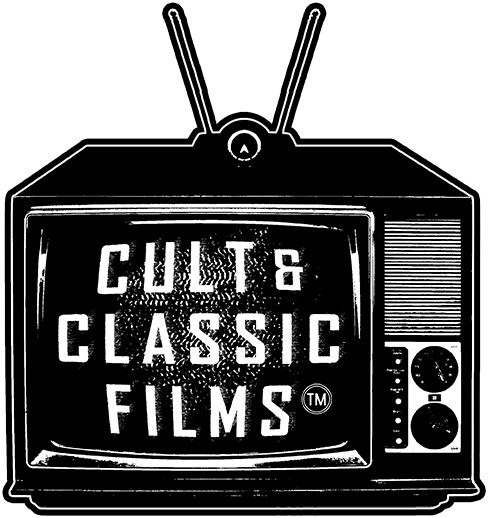EP 16: EYE OF THE TIGER (1986) vs. THE GINGERDEAD MAN (2005)
“More Busey, More Problems!”
We celebrate film and TV legend GARY BUSEY with this double-Busey bash! First up is 1986's stellar action romp EYE OF THE TIGER (1986)--and yes, the soundtrack is SURVIVOR-rific!--followed by Charles Band's cult favorite THE GINGERDEAD MAN (2005), where Busey voices a deadly cookie bent on revenge!
It's "More Busey, More Problems!" on this episode of CULT and CLASSIC Podcast!
Listen: Wherever you get your podcasts & at cultandclassicfilms.com/
Watch: youtube.com/@CULTANDCLASSICFILMS/
Subscribe at patreon.com/cultandclassicfilms for EXCLUSIVE cult movies sent to you every month!
Host: Nate Wyckoff
Panelists: Jeff Tucker, Amanda Longley, & Greg Johnson
More on EYE OF THE TIGER (1986):
"Eye of the Tiger" is a 1986 action thriller film directed by Richard C. Sarafian. Starring Gary Busey, Yaphet Kotto, and Seymour Cassel, this intense and gritty movie takes viewers on a thrilling journey through the world of vigilantism and personal redemption.
The film revolves around Buck Matthews (Gary Busey), a Vietnam War veteran who returns home to find his small town ridden with crime and corruption. Fueled by injustice and his own steely determination, Buck vows to clean up the streets and protect his community from its criminal underbelly.
After his own family becomes a victim of a ruthless biker gang, led by Blade (William Smith), Buck sets out on a path of vengeance. Determined to bring justice to those who ruined his peaceful haven, he forms an unlikely alliance with J.B. Deveraux (Yaphet Kotto), a former mob enforcer seeking redemption.
As Buck and J.B. embark on their mission to dismantle the gang, the film ventures into high-octane action sequences. The duo employs a combination of resourcefulness, street smarts, and sheer determination. Through their relentless pursuit, they encounter various obstacles, facing dangerous encounters and near-death situations.
While facing the violent criminal underworld, Buck must also confront his own inner demons and come to terms with the trauma he experienced during the war. His journey becomes one of personal redemption as he seeks to reconcile his past and find solace in protecting and revitalizing his community.
"Eye of the Tiger" stands out for its visceral action sequences and gritty depiction of a small town struggling with crime. The film delves into the themes of vigilantism, the impact of war on soldiers, and the complexities of right and wrong. Additionally, the performances of the cast, particularly Gary Busey in the lead role, contribute to the film's realism and intensity.
"Eye of the Tiger" remains a cult classic, emblematic of the times and the action films that captivated audiences. Its timeless themes, intense performances, and pulsating action sequences continue to resonate with viewers today, making it a must-watch for fans of gritty thrillers.
More on THE GINGERDEAD MAN (2005):
"The Gingerdead Man" takes audiences on a delightfully twisted and comically horrific journey, serving up a bizarre blend of horror and comedy. Directed by Charles Band, this cult-classic film is a treat for fans of both genres, combining a killer cookie and some unexpected scares with a generous sprinkling of dark humor.
The story revolves around a small-town bakery, the "Bakery of Blood," which unknowingly becomes the setting for a supernatural experiment gone awry. After witnessing the brutal murder of his father, young Jimmy Dean (played by Edwin Neal) sees his life forever changed when the infamous killer, Millard Findlemeyer (played by Gary Busey), is executed and his ashes accidentally find their way into a gingerbread mix.
Baking up the tainted dough, the bakery owner Sarah (played by Robin Sydney) unwittingly unleashes the Gingerdead Man, a malicious and murderous little gingerbread cookie with an insatiable appetite for vengeance. The bloodthirsty snack comes to life as an unholy combination of human ashes and evil magic, seeking to exact revenge on those who wronged Millard Findlemeyer.
As the Gingerdead Man terrorizes the bakery, no one is safe from his tiny, icing-covered wrath. The unsuspecting victims face their demise in creative and often absurd ways, symbolizing the twisted imagination that went into bringing this unique horror icon to life. From cookie cutters turned weapons to frosting traps, the Gingerdead Man proves to be both sadistic and oddly resourceful.
Amidst the chaotically macabre happenings, the film doesn't forget to sprinkle in moments of dark humor. These serve as a clever reprieve, allowing the audience to laugh nervously between the gruesome scenes. It's an odd balance, but one that ultimately contributes to the film's cult status and its reputation as a delightfully eccentric addition to the horror-comedy subgenre.
While "The Gingerdead Man" may not boast the most groundbreaking plot or character development, it compensates with its sheer audacity and gleeful embrace of its own absurdity. The film's success lies in embracing its inherent strangeness, acknowledging its limitations, and reveling in its gleefully over-the-top premise.
"The Gingerdead Man" has undoubtedly become a cult classic over the years, attracting fans who appreciate its unique blend of camp, dark humor, and gore. From its bizarre concept to its memorable catchphrases, this film stands as a testament to the creativity and willingness to take risks within the horror genre. It may not be for everyone, but those with a taste for the unconventional will undoubtedly find it to be a delectable treat.
